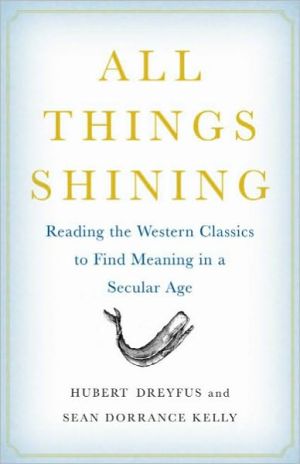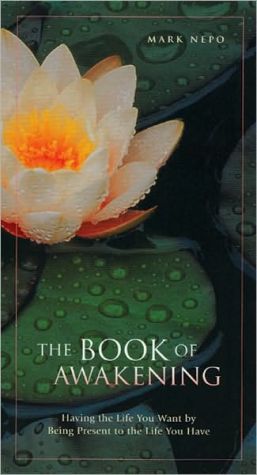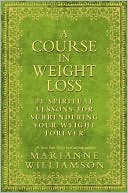All Things Shining: Reading the Western Classics to Find Meaning in a Secular Age
In unrelenting flow of choices confronts us at nearly every moment of our lives, and yet our culture offers us no clear way to choose. This predicament seems inevitable, but in fact it’s quite new. In medieval Europe, God’s calling was a grounding force. In ancient Greece, a whole pantheon of shining gods stood ready to draw an appropriate action out of you. Like an athlete in “the zone,” you were called to a harmonious attunement with the world, so absorbed in it that you couldn’t make a...
Search in google:
In unrelenting flow of choices confronts us at nearly every moment of our lives, and yet our culture offers us no clear way to choose. This predicament seems inevitable, but in fact it’s quite new. In medieval Europe, God’s calling was a grounding force. In ancient Greece, a whole pantheon of shining gods stood ready to draw an appropriate action out of you. Like an athlete in “the zone,” you were called to a harmonious attunement with the world, so absorbed in it that you couldn’t make a “wrong” choice. If our culture no longer takes for granted a belief in God, can we nevertheless get in touch with the Homeric moods of wonder and gratitude, and be guided by the meanings they reveal? All Things Shining says we can.Hubert Dreyfus and Sean Dorrance Kelly illuminate some of the greatest works of the West to reveal how we have lost our passionate engagement with and responsiveness to the world. Their journey takes us from the wonder and openness of Homer’s polytheism to the monotheism of Dante; from the autonomy of Kant to the multiple worlds of Melville; and, finally, to the spiritual difficulties evoked by modern authors such as David Foster Wallace and Elizabeth Gilbert.Dreyfus, a philosopher at the University of California, Berkeley, for forty years, is an original thinker who finds in the classic texts of our culture a new relevance for people’s everyday lives. His lively, thought-provoking lectures have earned him a podcast audience that often reaches the iTunesU Top 40. Kelly, chair of the philosophy department at Harvard University, is an eloquent new voice whose sensitivity to the sadness of the culture—and to what remains of the wonder and gratitude that could chase it away—captures a generation adrift.Re-envisioning modern spiritual life through their examination of literature, philosophy, and religious testimony, Dreyfus and Kelly unearth ancient sources of meaning, and teach us how to rediscover the sacred, shining things that surround us every day. This book will change the way we understand our culture, our history, our sacred practices, and ourselves. It offers a new—and very old—way to celebrate and be grateful for our existence in the modern world. Publishers Weekly Eminently qualified philosophers Dreyfus (U.C. Berkeley) and Kelly (Harvard) attempt to trace the decline of the West from the heroic, inspired age of Homer to our secularized, nihilistic age without a sense of transcendence and exultation. Unlike the ancient Greeks, the authors claim, today we lack a sense of the meaningfulness of life, of being called by a transcendent force. They probe this loss through a nonchronological roll call of writers, thinkers, and religious figures central to Western culture: Homer, Jesus, St. Paul, Dante, Luther, Descartes, Melville, and, representing today's unheroic age, David Foster Wallace But this sincere book reads more like a series of set pieces. Ambitious it is, but by turns it drifts or jumps, giving a sense of randomness to its argument. Late in the book, a long section on Moby-Dick notes, "Ahab is a combination of Kant's theory of human beings as autonomous selves and Dante's religious hope for eternal bliss." Such grand statements are not backed by a fully coherent, or a gracefully structured and proportioned argument. (Jan.)
A NOTE TO THE READER \ THE WORLD DOESN’T MATTER to us the way it used to. The intense and meaningful lives of Homer’s Greeks, and the grand hierarchy of meaning that structured Dante’s medieval Christian world, both stand in stark contrast to our secular age. The world used to be, in its various forms, a world of sacred, shining things. The shining things now seem far away. This book is intended to bring them close once more.\ The issues motivating our story are philosophical and literary, and we come at them from our professional background in these disciplines. But All Things Shining is intended for a nonspecialist audience, and we hope it will speak to a wide range of people. Anyone who lives in the contemporary world has the background to read it, and anyone who hopes to enrich his or her life by experiencing it in the light of classic philosophical and literary works can hope to find something here. Anyone who wants to lure back the shining things, to uncover the wonder we were once capable of experiencing and to reveal a world that sometimes calls forth such a mood; anyone who is done with indecision and waiting, with expressionlessness and lostness and sadness and angst, and who is ready for whatever it is that comes next; anyone with hope instead of despair, or anyone with despair that they would like to leave behind, can find something worthwhile in the pages ahead. Or at least that is what we intend.\ © 2011 Hubert Dreyfus
\ From Barnes & NobleMany contemporary public intellectuals have described our age as one in which religious absolutes have been called into deep question. Both those thinkers and their critics ask the same question: How can we find meaning and identify values in this new secular age? In All Things Shining, two distinguished professors tackle this potential crisis by exploring classic writings that most of us grappled with only as test topics. Their illuminating discussion of writers including Homer, Kant, Melville, Dante, Luther, and Descartes reveals a stabilizing groundwork of meaning.\ \ \ \ \ \ Publishers WeeklyEminently qualified philosophers Dreyfus (U.C. Berkeley) and Kelly (Harvard) attempt to trace the decline of the West from the heroic, inspired age of Homer to our secularized, nihilistic age without a sense of transcendence and exultation. Unlike the ancient Greeks, the authors claim, today we lack a sense of the meaningfulness of life, of being called by a transcendent force. They probe this loss through a nonchronological roll call of writers, thinkers, and religious figures central to Western culture: Homer, Jesus, St. Paul, Dante, Luther, Descartes, Melville, and, representing today's unheroic age, David Foster Wallace But this sincere book reads more like a series of set pieces. Ambitious it is, but by turns it drifts or jumps, giving a sense of randomness to its argument. Late in the book, a long section on Moby-Dick notes, "Ahab is a combination of Kant's theory of human beings as autonomous selves and Dante's religious hope for eternal bliss." Such grand statements are not backed by a fully coherent, or a gracefully structured and proportioned argument. (Jan.)\ \ \ From the Publisher“[A]n inspirational book but a highly intelligent and impassioned one.… compelling.” —The Wall Street Journal\ “Offers a meditation on the meaning of life, in a sharp, engaging style …” New York Times Book Review\ \ \ \ \ \ Library JournalDreyfus and Kelly (philosophy, Univ. of California, Berkeley, and Harvard Univ., respectively) explore the history of Western literature and philosophy with the aim of exposing how the ancients were able to mine meaning from such pieces while contemporary Westerners are so overwhelmed by choices that they have become blind to the elevating qualities that reflection can provide. Writing in a style that is straightforward and readily accessible to general readers, the authors consistently provide their audience with both reason and model for reengaging wonder at intellectual wonder itself. As they unwind Western intellectual history from Homer, Aristotle, and Augustine to Kant, John Foster Wallace, and beyond, they point to the mechanism by which one generation or era posits meaning on its literary tradition and how that "new idea" suppresses earlier visions of enlightenment. Thus, by the new emerging, the older ideas and ideals necessarily become different from what they were in their own time of mergence. VERDICT Successful in every way: as a clear-eyed history and as a call to move from bloodless analysis to a return to ancient wonder; recommended.—Francisca Goldsmith, Infopeople Project, Berkeley, CA\ \ \ \ \ Kirkus ReviewsTwo distinguished professors seek mankind's salvation in the ancient Greek gods.\ At first glance, this book would seem to be a rebuttal of the spate of arguments for atheism, and a ringing defense of polytheism, or an academic version of a self-help book, showing how to live a richer, more meaningful life by returning to precepts that preceded individual autonomy. In fact, Dreyfus (Philosophy/Univ. of California, Berkeley; On the Internet, 2001, etc.) and Kelly (Philosophy/Harvard Univ.) audaciously promise "nothing less than a philosophical and literary history of the West" in little more than 200 pages, aimed at the "nonspecialist audience" and "general reader." The authors successfully leapfrog through literary-philosophical history to suggest how we can reclaim redemptive qualities sacrificed to modernity. "When we develop in ourselves the ability for this kind of wonder and gratitude then we become a standing invitation to the gods," they write, asserting that one need not believe in those gods to recognize that one's feelings and fate are often shaped by forces outside the self and that there are limits to individual freedom and responsibility. In response to a metaphysical debate framed by Pulp Fiction, the authors write that "[t]he question that really matters...is not whether God was the causal agent but whether gratitude was an appropriate response." In other examples, Dreyfus and Kelly explore meaning (or the nihilism of meaninglessness) in the suicide of David Foster Wallace, the throwing problems of former baseball star Chuck Knoblauch and the rejection by Martin Luther of Aristotle. The book's wide scope is occasionally exasperating in its concision—"But before we move on to Descartes and Kant we will have to make a detour by way of St. Thomas Aquinas and Dante, who draw on Aristotle rather than Plato to make Christianity intelligible in Greek terms"—but the end result, detours and all, suggests a road map to the divine.\ A provocative, illuminating and inspirational exhortation to "Ask not why the gods have abandoned you, but why you have abandoned the gods."\ \ \ \ \ \ Michael RothThough brief, this is an ambitious book, offering insightful readings of authors including Homer, Dante, Descartes and Kant, as well as the novelists Herman Melville and David Foster Wallace…All Things Shining repays attention and reflection. It is a fascinating read and deserves an audience far beyond the borders of academia. Even if you don't agree that we are caught in an age of nihilistic indecision, if you attune yourself to the authors' energetic intelligence and deep engagement with key texts in the West, you will have much to be grateful for.\ —The New York Times\ \ \ \ \ Susan NeimanHere, two distinguished philosophers from the heart of the profession offer a meditation on the meaning of life, in a sharp, engaging style that will appeal to readers both within the academy and beyond it. They provide a compressed narrative of changes in Western understanding of human existence over the course of nearly three millenniums, and argue that reading great works of literature allows us to rediscover the reverence, gratitude and amazement that were available in Homeric times…All Things Shining offers fascinating readings of works of literature chosen to illuminate this narrative…as well as passionate glimpses of the attitudes toward the world the authors urge us to regain.\ —The New York Times Book Review\ \








